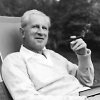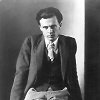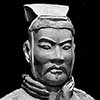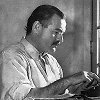Max Horkheimer Quotes 61 Sourced Quotes
When scientists take part in activity they transform themselves from scientists into acting beings, that is, they become elements, data, facts; as soon as they reflect on their activity, however, they are re-transformed into scientists. The trained specialist qua scientist looks upon himself as a chain of judgments and inferences; qua member of society, he regard himself as a mere object. The same holds for everyone. The individual is divided into innumerable functions, the interconnection of which are unknown. In society a man is pater familias under one aspect, business man under another, thinker under a third; to be more precise, he is not a human being at all, but all these aspects and many more in an inevitable succession. Max Horkheimer
Spinoza, for example, thought that insight into the essence of reality, into the harmonious structure of the eternal universe, necessarily awakens love for this universe. For him, ethical conduct is entirely determined by such insight into nature, just as our devotion to a person may be determined by insight into his greatness or genius. Fears and petty passions, alien to the great love of the universe, which is logos itself, will vanish, according to Spinoza, once our understanding of reality is deep enough. Max Horkheimer
A man discovers what he is actually worth in this world when he faces society as a man, without money, name, or powerful connections, stripped of all but his native potentialities. He soon finds that nothing has less weight than his human qualities. They are prized so low that the market does not even list them. Strict science, which acknowledges man only as a biological concept, reflects man's lot in the actual world; in himself, man is nothing more than a member of a species. In the eyes of the world, the quality of humanity confers no title to existence, nay, not even a right of sojourn. Such title must be certified by special social circumstances stipulated in documents to be presented on demand. Max Horkheimer
No criticism can be brought against a branch of technical science from outside; no thought fitted out with the knowledge of a period and setting its course by definite historical aims could have anything to say to the specialist. Such thought and the critical, dialectical element it communicates to the process of cognition, thereby maintaining conscious connection between that process and historical life, do not exist for empiricism; nor do the associated categories, such as the distinction between essence and appearance, identity in change, and rationality of ends, indeed, the concept of man, of personality, even of society and class taken in the sense that presupposes specific viewpoints and directions of interest. Max Horkheimer
























